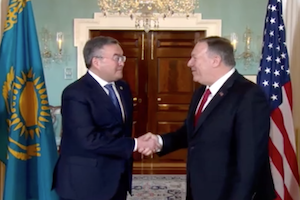ISIS Reaps Gains From the Pakistan-India Rivalry in Afghanistan
By Umair Jamal
July 21, 2020, the CACI Analyst
The growth of the terrorist organization known as the Islamic State in Iraq and Syria (ISIS) in Afghanistan poses a formidable challenge to India and Pakistan’s security interests in the region. Recently, an ISIS-claimed attack on a Sikh Gurudwara in Afghanistan involved a suicide bomber from India. On April 4, Afghan security forces arrested a Pakistani national and a high-ranking ISIS commander in Afghanistan, who authorized the Gurudwara attack. Reports indicate that ISIS is rapidly gaining recruits from India and Pakistan for its Afghanistan and Central Asia operations. The emerging threat in this regard would require close counterterrorism cooperation between Islamabad and New Delhi if the group is to be successfully defeated in Afghanistan. However, given Pakistan and India’s competition and record of undermining each other’s interests in Afghanistan, ISIS is set to gain exponentially in the coming months.
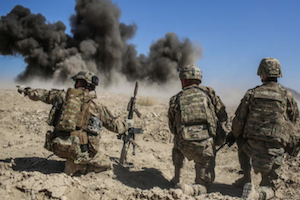
Afghan President and Rival Agree on Power-Sharing Formula: Will it Lead to Lasting Peace in Afghanistan?
By Umair Jamal
July 15, 2020, the CACI Analyst
After a months-long bitter election dispute, Afghanistan’s President Ashraf Ghani and his chief rival, Abdullah Abdullah, agreed in May to a power-sharing formula to form an inclusive government. Essentially, the agreement ended a political crisis that led to Ghani and Abdullah declaring parallel governments and threatened the ongoing international effort, spearheaded by the U.S., to negotiate a peace accord with the Afghan Taliban. While an agreement between Ghani and Abdullah is a welcome move, Afghanistan has been at this stage before. The current setup poses challenges to negotiations with the Taliban, dealing with external pressure to deliver on the U.S.-Taliban peace deal and managing underlying ethnic divisions that threaten the current regime.
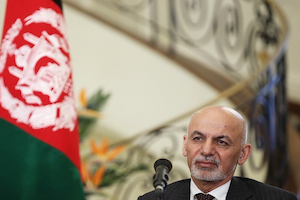
Russia Goes Bounty Hunting in Afghanistan
By Stephen Blank
July 8, 2020, the CACI Analyst
The revelations that Moscow paid Taliban warriors bounties to kill U.S., British, and other allied soldiers in Afghanistan is already generating a scandal in the United States. Yet for those who closely monitor Russian foreign policy in Central Asia and Afghanistan, this represents a particularly grisly escalation of policy but not a change in strategy. Moscow has long been determined to enhance its position with the Taliban and accelerate the ejection of U.S. forces from Afghanistan, which it regards as a threat to its position in Central Asia and to Russia. In Moscow’s imagination, the presence of several U.S. and/or NATO airbases in Afghanistan could strike Russian targets in Central Asia. Moreover, Russia has consistently expressed a visceral reaction to the presence of foreign military forces, especially Western ones, in and around Central Asia.
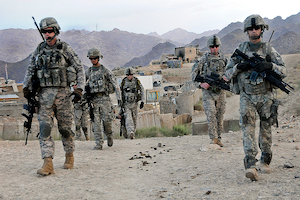
Post-COVID-19: Challenges and Opportunities for Central Asia
By Bakhrom Radjabov
June 4, 2020, the CACI Analyst
Since January, COVID-19 (coronavirus) has reached the level of a global pandemic. At first, some Central Asian republics seemed to be virus-free islands with zero confirmed infection cases. Afghanistan confirmed its first COVID-19 case on February 24, followed by a closure of the borders with other Central Asian republics. Kazakhstan discovered its first cases of COVID-19 on March 13, and Uzbekistan on March 15. Kyrgyzstan confirmed its first case on March 18 whereas Tajikistan did not report any cases until April 30. Before this date, the country allowed mass gatherings, including the celebration of Navruz, which was cancelled by other Central Asian governments. Turkmen authorities have so far not officially reported any cases of COVID-19 in the country.
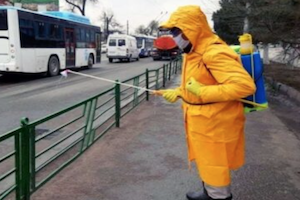
U.S. Presence in Central Asia: Realities and Perspectives
By Nurlan Aliyev
May 27, 2020, the CACI Analyst
In early February, U.S. Secretary of State Michael Pompeo visited Kazakhstan and Uzbekistan. He was received by the two heads of states in Nursultan and in Tashkent, Pompeo attended a C5+1 Ministerial with the foreign ministers of the five Central Asian republics to stress “U.S. support for a better connected, more prosperous, and more secure Central Asia” (State.gov). These thoughts are reflected in the new U.S. Central Asia Strategy. (State.gov). The renewed U.S. interest in Central Asia comes against the backdrop of China’s growing economic involvement in the region and Russia’s strong political and security relations with the Central Asian republics. Despite the Trump administration’s declarations of commitment to enhancing relations with the regional states, the perspectives of the U.S. in Central Asia should be examined.
